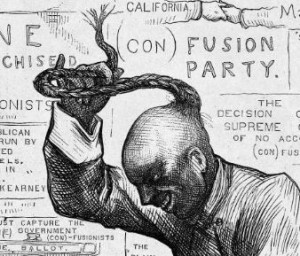From the Book of Numbers:
Now there was no water for the congregation; so they gathered together against Moses and against Aaron. The people quarreled with Moses and said, “Would that we had died when our kindred died before the Lord! Why have you brought the assembly of the Lord into this wilderness for us and our livestock to die here? Why have you brought us up out of Egypt, to bring us to this wretched place? It is no place for grain, or figs, or vines, or pomegranates; and there is no water to drink.”
(From the Daily Office Lectionary – Numbers 20:2-5 (NRSV) – June 27, 2014)
We have nearly come to the end of our second day in Israel, which has actually been our first full day. We began with what was described to us as a typical Palestinian breakfast — cheeses, pita, hummus, olives, pickled baby eggplant, fresh tomatoes and cucumbers, yogurt, hardboiled eggs, and a sautéed mixture of green olives, grape tomatoes, and mushrooms. There was also labneh, a salted yogurt cheese with herbs (in this case, I think it was a combination of basil and mint). It was all very different from our standard breakfast fare, and all very good.
Next on the agenda was a video of a 60-Minutes report from last year about Christians in the Holy Land. There a fewer of them than there used to be. Why that is so is an issue for debate. The Israeli government asserts that it is because of Muslim violence; the Christians we have met say that’s not true. That it is because of Israeli government policies. Perhaps the best analysis was the man who said that Christianity and the Christian community in this land are being lost through “collateral damage” in the conflict between Israeli Jews and Palestinian Arabs (who are mostly Muslim).
After that we began a walking tour of Jerusalem. St. George’s Cathedral Close is outside the Old City about a mile at the intersection of two roads which both lead to gates of the Old City: Nablus Road and Salah Eddin Street. Nablus Road leads north from the Damascus Gate; Salad Eddin Street leads north-northwest from Herod’s Gate; they cross at St. George’s Cathedral.
We walked our the “back gate” of the close (which is the front gate of St. George’s College) south through a business district (mostly the businesses were closed because it is Friday – the Muslim weekly holy day – and because today is the start of Ramadan – the Muslim holy month). Before getting to Herod’s Gate, we turned on Sultan Sulayman Road and walked west, across the street from the Old City walls. We entered the Old City through Damascus Gate and down “the Cardo,” the main north-south artery through the city.
Nearly every “street” (they are all foot traffic paths) through the city is a suq (marketplace) with stores hawking a variety of products; they are noisy, crowded, exciting, vibrant, and very alive places. Everyone seems to be quite friendly, but one suspects everyone is trying to lure you in for a sale.
It was a very hot day – temperatures are in the 90s (Fahr.) – and this is arid, high desert. We were cautioned many times to drink water. And so this episode of the Hebrews complaining to Moses and Aaron about their lack of water, today’s Old Testament lesson for the Daily Office, seemed a fitting introductory scripture for my summary of our activities. Every place where we could find a bit of shade and every entry into a building was welcome; every time we made a stop, I pulled my water bottle from my backpack and took a drink. Returning to our rooms, Evie and I each bought a 1.5 liter bottle of water and we downed them pretty quickly. The metaphor of water as God’s grace makes so much sense in a desert environment like this, and our thirst for rehydration is a reminder of our thirst for God.
The most striking thing of the day for me was the Church of the Holy Sepulcher. As I mentioned to our pilgrimage group during our sharing at Compline this evening, there was one part of that visit that made a huge impression. The church which was once one large space built by the Emperor Constantine’s mother St. Helena has been torn apart and subdivided by centuries of sectarian difference. It is now divided up into spaces claimed by Armenian Christians, Ethiopian Orthodox, Greek Orthodox, Roman Catholic (here called “the Latins”), Syrian Christians, and others. The only space jointly used is the actual Holy Tomb itself.
At set times during the day, each group holds prayers, and throughout the day deacons from each of the traditions come by to cense the Tomb. While I waited for others in our group, I watched the Roman, Armenian, and Greek deacons each come and do their ministry, each make the offering of incense, each swinging their thuribles in distinct ways. I was impressed with the way each went about this job with dedication, devotion, and singularity of purpose, unfazed by the crowds and the chaos of tourists and pilgrims. But I was also saddened by the fact that, because of the same sectarian division that had carved up the once magnificent space into smaller chapels, they could not do their ministry together. What could be a model for peace and reconciliation in this land which sorely needs it was yet another example of human division.
A fun thing for me today happened at the Western Wall. After I had gone to the wall and offered my prayers, impressed by the thousands and thousands of prayers written on slips of paper that pilgrims (perhaps of many faiths) had tucked into the joints and cracks in the stone, I was standing waiting to rejoin my wife. Two women came up to me and started asking me something in Hebrew! I could only shrug and say, “I’m sorry.” Then the younger, in what I believe to be an Israeli accent, said to me, “O, you’re not from here! You’re not a Jewish boy!” I admitted that I was not, but thanked her for calling me a boy!
A final impression of the day — Compline this evening with our group. As we began, a loudspeaker from a nearby mosque was broadcasting the sound of verses of the Holy Qur’an being chanted, and then more of the traditional Ramadan fireworks sounded. Our prayers were added to these manifestations of praise of God. Meanwhile, the sabbath of the Jews was underway. In this dry, arid land where water is life, three major world faiths come together in prayer, perhaps involuntarily, perhaps with tension, certainly with division, and clearly in this place with enmity . . . and yet at that moment, we were all united like different herds of thirsty animals coming together at a desert oasis or at a spring in time of drought. We ought to be able to learn from this!
And that is my prayer for the people of Israel and Palestine as Ramadan begins, that peace and reconciliation might come to this place and that, at long last, as the Psalmist once wrote, “Jerusalem . . . [will be] at unity with itself.” (Ps. 122:3, BCP Version)
Photos from our day can be found in this Facebook gallery:
====================
A request to my readers: I’m trying to build the readership of this blog and I’d very much appreciate your help in doing so. If you find something here that is of value, please share it with others. If you are on Facebook, “like” the posts on your page so others can see them. If you are following me on Twitter, please “retweet” the notices of these meditations. If you have a blog of your own, please include mine in your links (a favor I will gladly reciprocate). Many thanks!
====================
Father Funston is the rector of St. Paul’s Episcopal Church, Medina, Ohio.
 Sometimes I just don’t understand Paul.
Sometimes I just don’t understand Paul. Believe it or not, I’ve actually had the last of these selected verses quoted to me as part of an argument against the use of incense in the church. I was in a conversation with someone about our use of incense in “high church” liturgies, being told (among other things) that incense was fine when we were younger and acting like hippies but now that we are older and mature we should put aside such childish ways, when this chestnut was pulled out. Since I’ve studied the Old Testament (as most clergy have) I knew my critic was misusing the text.
Believe it or not, I’ve actually had the last of these selected verses quoted to me as part of an argument against the use of incense in the church. I was in a conversation with someone about our use of incense in “high church” liturgies, being told (among other things) that incense was fine when we were younger and acting like hippies but now that we are older and mature we should put aside such childish ways, when this chestnut was pulled out. Since I’ve studied the Old Testament (as most clergy have) I knew my critic was misusing the text. Great! Here it is, the single phrase in Paul’s writing, the single preposition the translation of which can radically change one’s understanding of the doctrine of justification by faith. But . . . I’m not going to address that doctrine this morning; I’m more interested right now in ambiguity.
Great! Here it is, the single phrase in Paul’s writing, the single preposition the translation of which can radically change one’s understanding of the doctrine of justification by faith. But . . . I’m not going to address that doctrine this morning; I’m more interested right now in ambiguity. A friend and colleague preparing to sell her home and take up residence with her husband in a retirement community told me recently that she and he had begun disposing of their many possessions. Among the things to which they have said “Good-Bye” is her husband’s collection of clocks.
A friend and colleague preparing to sell her home and take up residence with her husband in a retirement community told me recently that she and he had begun disposing of their many possessions. Among the things to which they have said “Good-Bye” is her husband’s collection of clocks. Have you ever noticed how one of the most common sorts of souvenirs to be brought back from a trip is food? Every time we travel, my wife and I, we bring back food. Sometimes the authorities thwart us, but we try.
Have you ever noticed how one of the most common sorts of souvenirs to be brought back from a trip is food? Every time we travel, my wife and I, we bring back food. Sometimes the authorities thwart us, but we try. If Jesus stands for anything, he stands for community, for the ability of people graced by God to reconcile with one another despite their differences. Yet even he acknowledges that there are times when reconciliation is impossible, that there are people who will not engage in constructive dialog, will not compromise, and will not modify their behavior. His advice is to let such a person go: “Let such a one be to you as a Gentile and a tax-collector.”
If Jesus stands for anything, he stands for community, for the ability of people graced by God to reconcile with one another despite their differences. Yet even he acknowledges that there are times when reconciliation is impossible, that there are people who will not engage in constructive dialog, will not compromise, and will not modify their behavior. His advice is to let such a person go: “Let such a one be to you as a Gentile and a tax-collector.” Until I undertook a little bit of Greek language study, I always thought Jesus’ pronouncements of woe were angry condemnations, predictions of doom, and certainly they can be that. On the other hand, they can be understood as something very different. The Greek word translated as “woe” is ouai which can also (and perhaps more properly) be translated as “alas.” The word is onomatopoeic, representing a deep sigh of sorrow or resignation. Perhaps Jesus is not so much condemning as mourning.
Until I undertook a little bit of Greek language study, I always thought Jesus’ pronouncements of woe were angry condemnations, predictions of doom, and certainly they can be that. On the other hand, they can be understood as something very different. The Greek word translated as “woe” is ouai which can also (and perhaps more properly) be translated as “alas.” The word is onomatopoeic, representing a deep sigh of sorrow or resignation. Perhaps Jesus is not so much condemning as mourning. “O great,” I think, reading this story. “Here’s one of those fairy tales that make the story of Jesus so unbelievable for some people.” Let’s face it, a fish with a silver coin in its mouth that’s just enough to pay the taxes levied by the authorities ranks right up there with Jack’s magic beans, the goose that laid golden eggs, and Rapunzel’s spinning wheel that made gold from straw. It has all the markings of the fantastic and none of the real.
“O great,” I think, reading this story. “Here’s one of those fairy tales that make the story of Jesus so unbelievable for some people.” Let’s face it, a fish with a silver coin in its mouth that’s just enough to pay the taxes levied by the authorities ranks right up there with Jack’s magic beans, the goose that laid golden eggs, and Rapunzel’s spinning wheel that made gold from straw. It has all the markings of the fantastic and none of the real.

